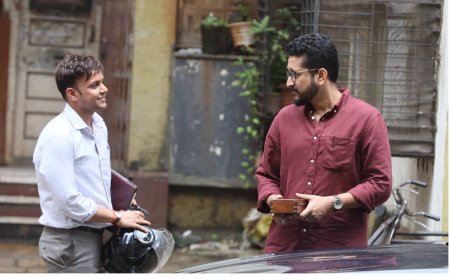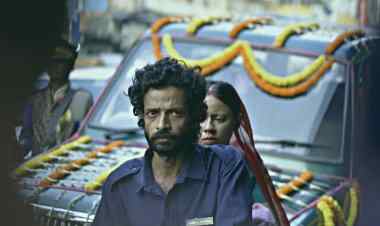SAMARESH BASU’S PROJAPOTI : A FILM ON A BANNED WORK OF LITERATURE BY SUBRATA SEN
"Projapoti basically, is a different kind of coming-of-age story of Sukhen (Subrat Dutta) who grows up to become a gang leader of his locality hired by political big-wigs to threaten people chosen by them to threaten, bash up or even kill," writes Dr. Shoma A. Chatterji.
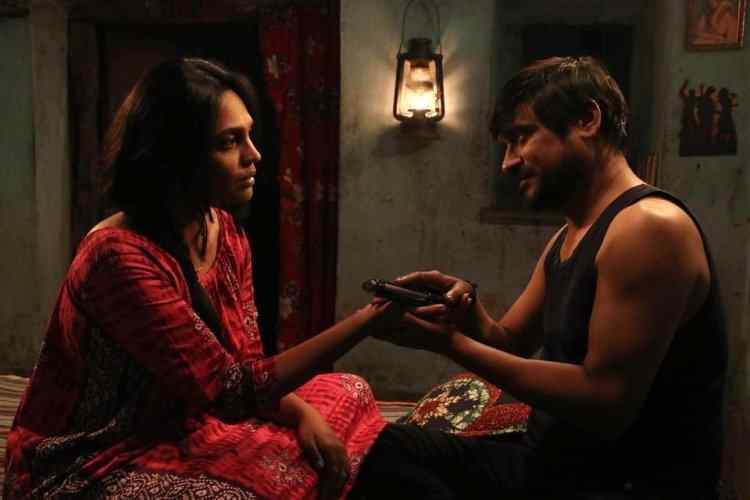
Noted Indian film scholar and author Dr. Shoma A. Chatterji writes on PROJAPOTI
Samaresh Basu is one of the most outstanding litterateurs in Bengali literature. His works have not only been translated into different languages but several of his works have also been made into films over the years both in Hindi and Bengali. A prolific writer with more than 200 short stories and 100 novels to his name, Basu's writings ranged from political activism to sexuality. Two of his novels, including Bibar, were briefly banned on charges of obscenity. Under the nom de plume 'Kalkut', Basu also wrote novels such as Amritakumbher Sandhaney and Shamba, the latter having won him the Sahitya Akademi Award in 1980. His life experiences populated his writings with themes ranging from political activism to, working class life to, sexuality.
However, over his prolific journey through writing with a solid back story of his involvement in trade union politics following a prison sentence, what surprises everyone is the fact that two of his novels, Bibar and Projapoti had been banned on charges of obscenity. The case against one of these, Projapati, (1967) was settled in the Supreme Court of India which overturned, in 1985, the rulings of the two lower courts.
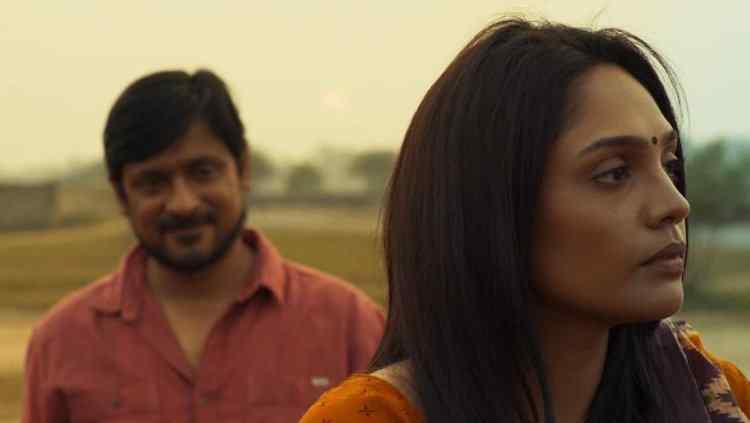
“The publisher was dragged to court on the grounds that the book could harm the moral character of the young generation. The lower court and even the Calcutta High Court’s verdicts didn’t go in favour of the novel. Copies of the book had to be destroyed. After a prolonged legal battle lasting 17 years, the Supreme Court finally gave a verdict in 1985 in favour of the novelist and the publisher. It is interesting to discover how such a controversial work is now being adapted on screen. The audience reaction will also be important,” said author, Prabal Kumar Basu.
According to Sumanta Banerjee, “Samaresh Basu remains the most representative storyteller of Bengal's suburban life, as distinct from other well-known Bengali authors who had faithfully painted the life and problems of either Bengal's rural society or the urban middle class. Basu draws on his lived experience of Calcutta's `half-rural, half-urban,' industrial suburbs."
This novel has been made into a film twice. The first version, directed by veteran actor Biplab Chatterjee in 1993, turned out to be a total washout in spite of an excellent cast. Perhaps the audience then was not prepared to accept a failed hero who gets killed in the end.
Thirty years later, it was left to the very innovative and rebellious filmmaker Subrata Sen to take up this novel and make a film on it again. The title of the film is now “Samaresh Bosu-r Projapoti” to avoid copyright controversies and also to underscore that the film is based on the once-banned novel.
Who is Subrata Sen? For a long time, he was a journalist having worked with leading newspaper organisations in Kolkata till he turned his attention to films. Minus any training in filmmaking, Sen captivated audiences in West Bengal with his directorial debut Ek Je Aache Kanya (The Girl) which marked the debut of Konkona Sen in the title role. The film is still counted among one of the best psychological thrillers in contemporary Bengali cinema. It was said to have been inspired by the Hollywood film The Crush starring Alicia Silverstone. The film found place in the Karlovy Vary Film Festival, besides bagging for Sen the Gollapudi Srinivas National Award for a debut director.
His next film Swapner Pheriwalla did not become a commercial success, and is still remembered for its unusual storyline and unique treatment. Sen refuses to bend to commercial pressures and makes films when he feels like it or likes a good story. So, he happens to direct films with long intervals between two films.
Smiling, Sen says, “I dabbled with digital film making when cinema was still firmly embedded in the film (celluloid) format and still I went ahead and did Nil Nirjone. That film was derided by many, but after 20 years it has been recognised as the first digital film of India and is being curated by Film Archive. More importantly I got a place in the November issue of Sight and Sound magazine, along with Agnes Varda (which I consider a major feat) to be interviewed together and considered a pioneer of digital filmmaking.” That is Subrata Sen for you. He does exactly what he wants, when and how he wants to do it and to hell with critics who praise his films or draw and quarter them to mincemeat.
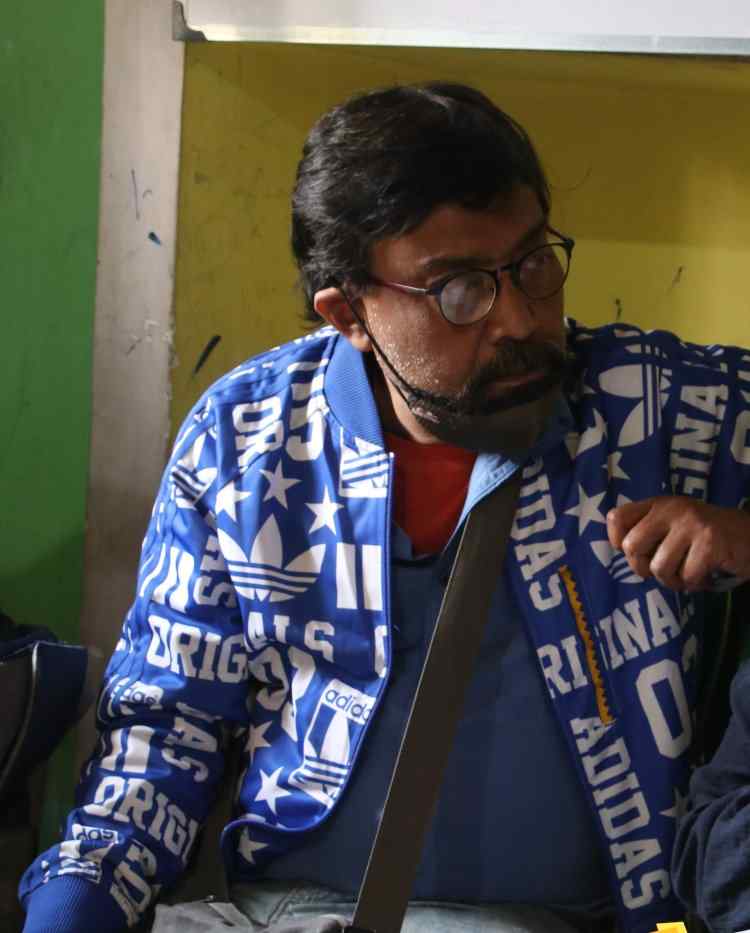
His current film is Samaresh Bosu – Projapoti, an adaptation of Samaresh Basu’s novel. This was screened at the Kolkata International Film Festival last year. It took Sen by surprise because he makes off-beat films that do not always find favour either with critics or the audience at large. The very fact that he picked this novel is proof that he has the guts to delve into subjects not usually touched by other filmmakers.
“Projapoti was a very difficult film to make. The literature is basically a “stream of consciousness” story, much propagated by Satre and Camus in French literature at that time, which had its ripples in Bengali literature too. Samaresh Basu and Buddhadeb Basu were pioneers, though I have doubt how many fathomed them. That was probably the reason both were derided and marked as writing “sex”. With normal Bengali paternal “bhodrolok” in our upbringing that’s normal,”explains Subrata.
Projapoti basically, is a different kind of coming-of-age story of Sukhen (Subrat Dutt) who grows up to become a gang leader of his locality hired by political big-wigs to threaten people chosen by them to threaten, bash up or even kill. Sukhen grows up in an extended family but he goes through a very unhappy childhood with a sick mother constantly being abused by his alcoholic father least concerned about his son. Basically, he is a nice boy, but his mother’s constant illness at home and his father’s bad behaviour and lifestyle have their impact on his upbringing.
“I wished to adapt the novel because I wanted to pay a tribute to Basu whose earlier work ‘Bibar’ was also adapted by me. I changed the timeline of the backdrop to contemporary times and set it in Purulia instead of the original Naihati. I never felt that the novel was obscene or vulgar. Rather, it is about a youth’s angst against the backdrop of a subaltern society. The novel’s language might have seemed obscene in the 1960s when the Bengali ‘bhodrolok’ was not used to this language. Using street lingo in literature was scandalous for them. That’s no more the case now since society has evolved,” Sen said.
He is right. He has brought in so many changes in the original story that could now be called his own story. Since Sukhen is the protagonist of this very difficult tale, he has split the character into three and used three actors to portray Sukhen first as a school boy, trying to study but failing because of the negative environment at home, then as a teenager slowly getting into bad company and bad deeds and visiting prostitutes even as a teenager and then, as an adult Sukhen who, despite wishing to give up his shady life with criminal deeds to begin a normal family life with his long-time girlfriend Sikha (Mumtaz Sorcar), is compelled to live on as this kind of life is a no-exit life and his is no different. But the time leaps are not treated sequentially so at times, it becomes difficult to understand who is who.
Sikha (Mumtaz Sorcar), lives in the doldrums with her alcoholic father and makes a living out of dancing at the local do’s (macha performances) organized by the lumpens of the neighbourhood and loves Sukhen very much. But their love is doomed from the beginning because of the threatened and dangerous life Sukhen lives, trapped between the police on one side and his political mafia leaders who pay him on the other side.
The casting is brilliant as all the major characters and cameos including Sikha's father, the liquor shop owning couple, Sukhen's parents, the political leaders have excelled themselves. The characters are fleshed out in a way that evokes our sympathy for the negative protagonist Sukhen instead of evoking hate and anger. The characters create the story and the incidents emerge from their interactions and not the other way round.
Asked how he decided on the rather unusual casting, Subrata says, “Normally, I decide on casting based on the character, not on star value. Subrat was best suited for Sukhen's role. I couldn't think of anyone else who would fit into the role. Also, he has worked with me several times, so there was a comfort factor of working with him. Mumtaz has grown as an actor from when I had cast her in "Koyekti Meyer Golpo" in 2012. I had been following her work since then and she did impress me. Also, I had in mind the realistic "macha" sequence in front of a 1000 odd crowd and I could think of no one else to pull that off without any choreographer being present in a realistic setup. Rwitobroto Mukherjee as the adolescent Sukhen came in automatically as he has a facial similarity with Subrat and he is an excellent actor. Sritama, the young girl who falls in love with the teenaged Sukhen and elopes with him was cast through an audition, but another very important criteria was finding someone who can ride a scooty in a crowded Mufassal town. About 60% of the cast comes from Purulia and we stationed there seven days before shooting and picked up the cast. A local theatre group helped me in this.” The music is very good and I loved the cheap item number of "dim paunruti" Mumtaz dances to in the beginning in the “macha”[i] scene.
The locations are captured beautifully which span across the expanses of the small neighbourhood with a river, tall trees, a maidan where lecture-demonstrations are held, the ancestral home where Sukhen grew up, Sikha’s terrible home where she cooks when she is at home, and the massive godowns of the political heads who use their political power to rob, torture and kill through henchmen.
Not having chosen glamorous stars gives the film an extra edge because mainstream big names cannot break out of their starry auras and this impacts on their acting and portrayal even if they are very good performers. Subrat Dutta certainly takes the cake and the cherry on top. What an actor he is. The kind of corruption, killing and shifting parties shown in the film are too dangerously close to what is happening around us in real life everyday. This gives the film a new dimension.
Summing up his experience briefly, Subrata says, “For me, it was a difficult film because the screen adaptation was tough. Also, the shooting was tough because we had to forego the usual luxury that we are used to in Kolkata. Rarely a filmmaker can achieve 85-90% of what his initial thoughts are when translated to the Big Screen. This is one of those rare films in my portfolio.”
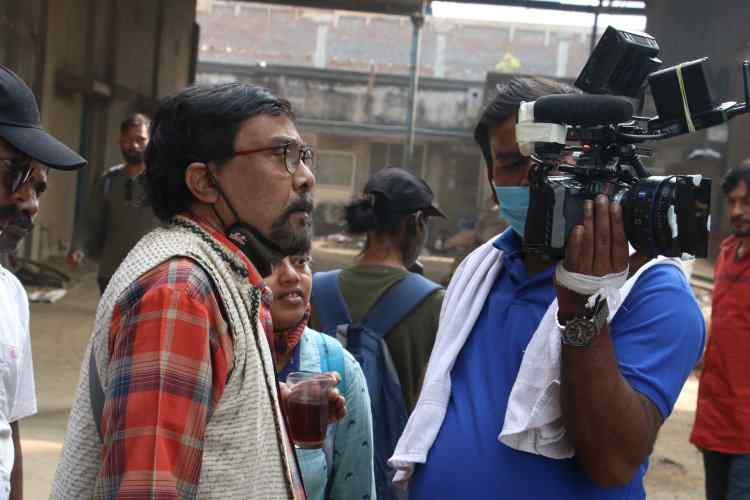
***
[i] Macha is a colloquial term that implies local entertainment programmes organized by neighbourhood boys where indigenous performances are organized. Decent people do not attend these and women perform but do not form part of the audience.
What's Your Reaction?







